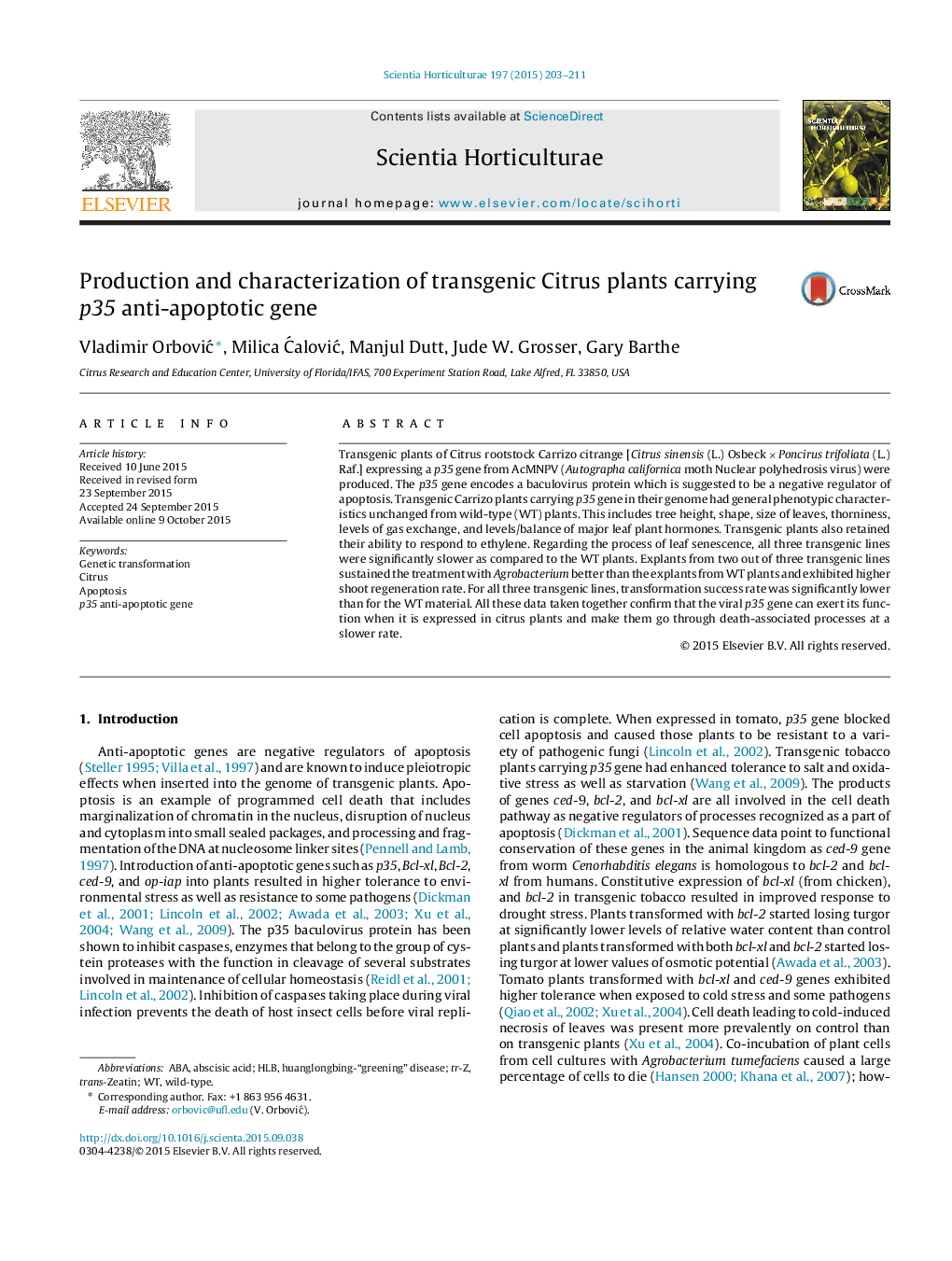| کد مقاله | کد نشریه | سال انتشار | مقاله انگلیسی | نسخه تمام متن |
|---|---|---|---|---|
| 6406713 | 1628801 | 2015 | 9 صفحه PDF | دانلود رایگان |

- Transgenic Citrus rootstock plants expressing anti-apoptotic gene were produced.
- Transgenic plants maintained features of wild-type plants associated with growth.
- Physiological features are similar in wild type and transgenic plants.
- Leaf senescence is significantly decelerated in transgenic plants.
- Transgenic plants are less susceptible to Agrobacterium transformation.
Transgenic plants of Citrus rootstock Carrizo citrange [Citrus sinensis (L.) Osbeck Ã Poncirus trifoliata (L.) Raf.] expressing a p35 gene from AcMNPV (Autographa californica moth Nuclear polyhedrosis virus) were produced. The p35 gene encodes a baculovirus protein which is suggested to be a negative regulator of apoptosis. Transgenic Carrizo plants carrying p35 gene in their genome had general phenotypic characteristics unchanged from wild-type (WT) plants. This includes tree height, shape, size of leaves, thorniness, levels of gas exchange, and levels/balance of major leaf plant hormones. Transgenic plants also retained their ability to respond to ethylene. Regarding the process of leaf senescence, all three transgenic lines were significantly slower as compared to the WT plants. Explants from two out of three transgenic lines sustained the treatment with Agrobacterium better than the explants from WT plants and exhibited higher shoot regeneration rate. For all three transgenic lines, transformation success rate was significantly lower than for the WT material. All these data taken together confirm that the viral p35 gene can exert its function when it is expressed in citrus plants and make them go through death-associated processes at a slower rate.
Journal: Scientia Horticulturae - Volume 197, 14 December 2015, Pages 203-211